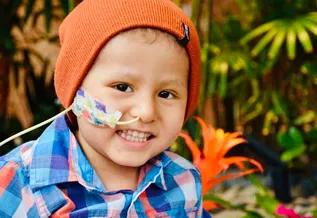See stories and news about the expert care and breakthrough research that supporters like you make possible at Boston Children's.

Patient Story
United by grim diagnoses, two athletes found answers at Boston Children’s.
Boston Children’s Hospital today announced a gift of $100 million from Rob and Karen Hale—the largest in the hospital’s history—to transform the futur…

Donor Story
Rob and Karen Hale have made a remarkable commitment of $100 million to Boston Children’s, the largest philanthropic gift in our hospital’s history, e…

Patient Story
Care and support were like “a seatbelt on a rollercoaster” for his family.

Patient Story
After beating childhood cancer, he and the NHL are helping other patients.

Patient Story
After his family rushed to Boston Children’s, doctors found a life-threatening problem.

Donor Story
A retired Boston Children’s Hospital Trust leader is a lifelong champion of the mission.

Patient Story
After two transplants, she raises money to help other kids.

Donor Story
After Boston Children’s Hospital saved Ella’s life, her friends and family rallied “the troops” to give back.

Patient Story
Research at Boston Children’s led to a solution for a rare condition.
